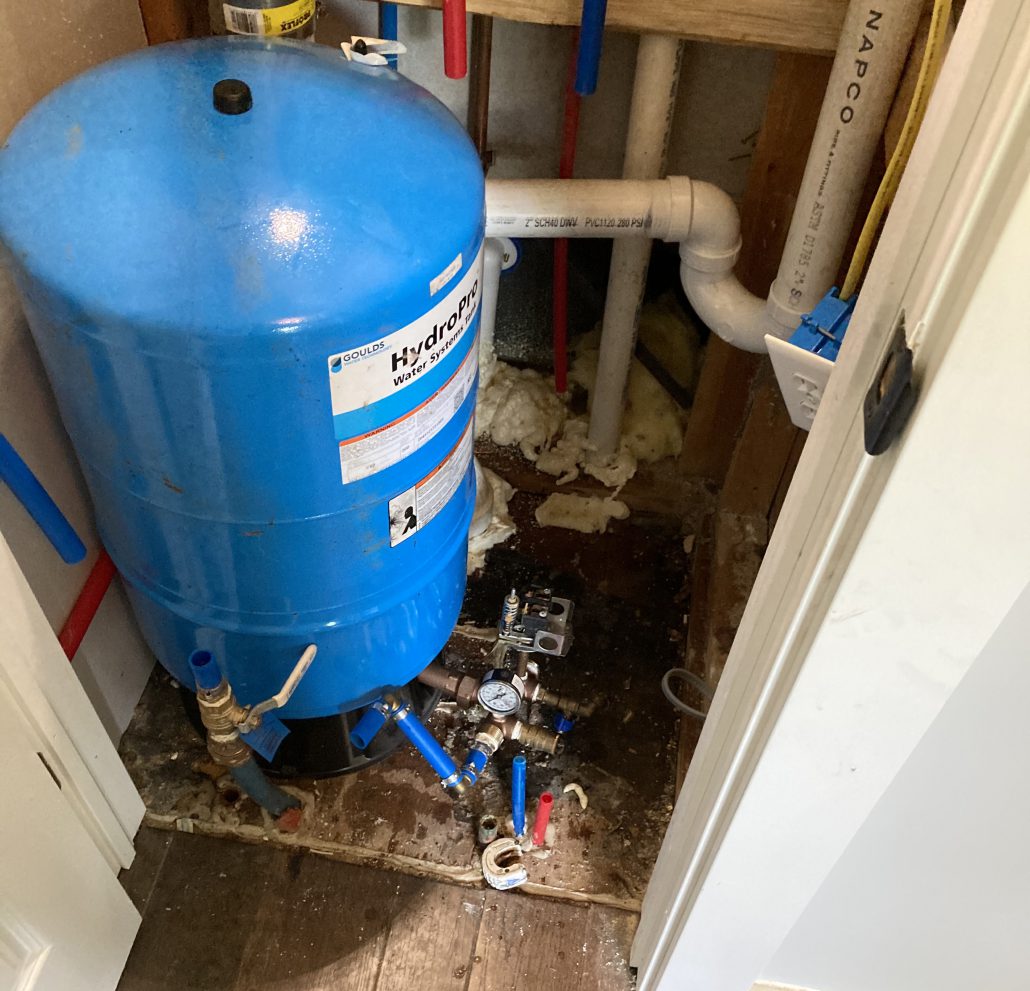Effortless Well Pump Replacement: Revitalizing Your Water Framework with Self-confidence
Effortless Well Pump Replacement: Revitalizing Your Water Framework with Self-confidence
Blog Article
Recognizing the Key Components of Effective Water Filtration Systems

Value of Water Purification Equipment
Water filtration systems play a critical function in making certain accessibility to risk-free and tidy alcohol consumption water by successfully eliminating contaminants and contaminations. These systems are crucial in attending to the growing problems over water high quality and the potential wellness risks linked with taking in contaminated water. By using various filtering mechanisms such as reverse osmosis, triggered carbon, and UV sterilization, water filtering systems can successfully get rid of harmful materials like bacteria, infections, hefty metals, and chemicals from the water.
Additionally, water filtration systems assist to boost the taste and odor of water by removing chlorine, sediments, and other toxins that can affect its high quality. Water Treatment. This enhancement in water high quality not just makes it more palatable yet additionally motivates people to consume an adequate amount of water daily, advertising far better hydration and overall health
Sorts Of Filtration Parts

Physical filters are made to literally stress out contaminations from the water. These filters can be made of materials like ceramic, carbon, or perhaps sand, and they work by capturing fragments bigger than the filter's pores as water goes through.
Chemical filters use various chemical processes to eliminate pollutants from the water. Examples include activated carbon filters, which adsorb pollutants, and reverse osmosis membranes, which utilize pressure to separate pollutants from the water.
Biological filters use living organisms like algae or germs to break down organic issue and toxins in the water. These filters are often used in wastewater therapy plants or all-natural water filtration systems.
Recognizing the various sorts of filtering elements is important for choosing the most suitable water filtration system for details filtration demands.
Feature of Sediment Filters
Sediment filters play a crucial role in water purification systems by properly catching solid particles put on hold in the water. These filters are commonly the initial line of defense in a filtration system, getting rid of bigger particles such as sand, silt, dust, go and corrosion before the water moves via finer filtering stages. By capturing these debris, the filters prevent them from getting to downstream elements, hence expanding the life expectancy and efficiency of the whole system.
Overlooking this upkeep can lead to clogging, decreased water circulation, and jeopardized filtration effectiveness. Generally, debris filters are important parts that add considerably to the efficiency of water filtration systems.
Function of Turned On Carbon Filters
Playing an important duty in water purification systems, activated carbon filters contribute in getting rid of impurities and contaminants from the supply of water. These filters are created to adsorb and catch a wide variety of pollutants, including chlorine, volatile natural substances (VOCs), pesticides, and herbicides. The triggered carbon material has a large area, permitting the reliable capturing of pollutants with a procedure called adsorption. As water goes through the filter, the triggered carbon holds and draws in onto the impurities, making sure that the water that appears on the other side is cleaner and more secure for consumption.
Turned on carbon filters are extremely effective at enhancing the taste and smell of water by decreasing chemicals that can affect its high quality. Due to their versatility and integrity, activated carbon filters are a vital element in making certain that water is purified to the highest possible standards prior to reaching consumers.
Recognizing Reverse Osmosis Solutions
Reverse osmosis systems are advanced water filtering systems that use an innovative process to eliminate impurities and impurities from alcohol consumption water. These systems work by using pressure to the water, compeling it through a semi-permeable membrane. This membrane layer acts as a barrier, permitting just pure water particles to travel through, while blocking larger particles such as minerals, chemicals, and various other impurities. As an outcome, the water that appears on the other side is significantly cleaner and much safer for intake.
One key benefit of reverse osmosis systems is their capability to eliminate a vast array of contaminants, including heavy metals, dissolved solids, bacteria, and viruses. This makes them extremely efficient in enhancing the general high quality and security of drinking water. Furthermore, reverse osmosis systems are fairly low-maintenance and can be mounted under the sink or in a central filtering system, giving convenient access to tidy water throughout the house. On the whole, recognizing just how his explanation reverse osmosis systems function can assist individuals make informed decisions concerning their water filtering requirements.
Verdict
To conclude, efficient water filtration systems are essential for guaranteeing tidy and risk-free drinking water. The key elements of these systems consist of sediment filters, activated carbon filters, and reverse osmosis systems. By recognizing the function and role of each component, individuals can make educated decisions when picking a water purification system. It is essential to focus on the high quality of water in order to advertise general health and wellness.
Water purification systems play a vital role in making sure accessibility to clean and secure alcohol consumption water by effectively eliminating impurities and impurities. By utilizing different purification devices such as reverse osmosis, activated carbon, and UV sterilization, water purification systems can efficiently get rid of harmful substances like germs, infections, heavy metals, and chemicals from the water supply.
Sediment filters play a critical role in water filtration systems by successfully recording solid particles suspended in the water (Water Filtration Systems).Playing a vital duty in water purification systems, activated carbon filters are instrumental in removing impurities and pollutants from the water supply.Reverse osmosis systems are sophisticated water filtering systems that use an innovative procedure to get rid look at here now of impurities and contaminations from alcohol consumption water
Report this page